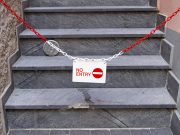In Defense of Voracious Reading
Every so often, I come across a repeated sentiment expressed by different people at different times. “It’s far more impressive,” they might say, “to read 3-5 excellent books well in a year, than to boast of reading 100-plus books.” While many people today are making Twitter threads tracking their reading through the year, or pursuing lofty Goodreads Reading Challenges in the double or triple digits, these folks see such speedy reading as indicative either of misplaced priorities or even of a failure to read well. If only a small handful of truly good books can be read well in a single year, are the people with long book lists simply poor readers, squanderers of their time?
Here, I would like to defend voracious reading against its detractors. There is nothing wrong with reading a book or more per week.
I find myself in an interesting position in these conversations because, more often than not, I share some key assumptions with those who dismiss heavy reading loads as unimpressive. Quite often, these people are defenders of the “Great Books” or the “Western Canon,” advocates of a set of classic and timeless texts as touchstones for educating free citizens. So far, I am with them: along with the likes of Mortimer Adler and more recent defenders like Roosevelt Montás, I can heartily recommend a Great Books reading list to any and all who wish to expand their horizons, challenge themselves, and wrestle with perennial questions. But as someone who has, for most of his life, left libraries with stacks of a dozen or more books, only to return for more of the same, I cannot and will not co-sign an indictment of voracious reading.
Responding to these critics requires some awareness of both why we read, and what we read. I phrase the “why” and the “what” in this order intentionally, because “why we read” will naturally inform “what we read.” If I am reading with the purpose of learning a particular skill, my reading list will follow from the purpose. If I am reading with the purpose of shoring up ignorance of a particular knowledge area, my reading list will likewise follow. If I am reading for the sheer pleasure of immersing myself in a story, expanding my horizons, and encountering new tales, the reading will follow.
So, why do I read? That depends. Any given day, I might be reading for a particular research project that requires me to gain familiarity with thinkers, authors, and historical events of which I am ignorant. I might be reading an assigned text for a discussion seminar, or a paper to review for an academic journal. I might be reading to prepare for a course I am teaching in the fall. But on many occasions, I am reading simply for the pleasure of the thing.
As an example: I was asked this past academic year on relatively short notice to teach a course in the Political Thought of the American Founding. While I was familiar with many of the previously assigned texts in the course, I had not taught the class, and it had been some time since I had revisited these texts. My reading over my Christmas break was thus shaped by this need to become more conversant in some of the landmark texts from the American founding era.
There is nothing about fast and regular reading that prevents me from engaging in close, careful, scholarly reading alongside. In fact, the former can aid someone whose goal is the latter.
As a teacher, when I sit down to read John Adams’ Thoughts on Government or Dissertation on Canon and Feudal Law, I no longer read like a student cramming before a seminar. I read carefully and slowly, marking allusions Adams makes to other texts, historical events referenced, interlocutors to whom Adams is responding. I take time as I read and after I read to hunt down context for Adams’ arguments, the sources of his quotations, and the texts to which he might be responding. I approach the work with an eye to understanding it deeply, so that I might better facilitate the learning of my students as I guide them through a text I must know well. This form of reading is plodding by necessity, slow and steady as it were. One cannot do scholarship at the Hare’s pace.
But when I put down my John Adams, or my Plato, or my Adam Smith, or anything else needed for teaching or research, I turn to my endless pile of “to be read” books. These books, I read differently. If I pick up Brandon Sanderson’s latest fantasy offering, for example, I can simply allow myself to become immersed in the story. I get caught up in the characters and their drama, their emotions and their goals, hungry to discover what twists the author and the story will throw at them as I consume the story set before me. In this form of reading, I can cover material much faster than I can with the previous method, and thus my Goodreads “read” list inflates apace.
I submit that this latter type of reading is neither less valuable nor less essential than the former. I submit, further, that this type of engaged, hungry, immersive reading is not limited to junk-food-like works of popular fantasy and light fiction. It can befit even some of the Greatest of Great Books. I have witnessed students get caught up in the drama of Plato’s Republic, of the conflicts at the heart of Sophocles’ Antigone, of the violent narrative spun by Hobbes in his Leviathan, and by the captivating analysis of Tocqueville’s Democracy in America. Will reading these dense, timeless texts at the pace of a bookworm mean that the reader will miss things along the way? Of course! But if we are suggesting that these books are worth revisiting time and again (and they are), what matters a couple of trees missed for the appreciation of the forest?
If I act as an academic buzzkill, ready to jump down the throats of the heavy readers for failing to slow down and appreciate great texts, or for reading light and pleasurable material instead of dense, heady works, I risk squashing the love of engaging with texts. This is what might inspire those readers to find pleasure in the books I delight in myself. If I discourage my students from letting a Shakespeare play or a Platonic dialogue simply wash over them before descending the rabbit hole of exegesis, I risk hiding the magic that makes these texts Great and perennial. This does not require me to engage in hokey attempts to make old texts “relevant” to the modern reader; it simply means allowing the consistently human parts of the texts to work their magic unimpeded by potentially stifling expectations of scholarly rigor.
There is nothing about fast and regular reading that prevents me from engaging in close, careful, scholarly reading alongside. In fact, the former can aid someone whose goal is the latter. Broad reading can expose me to texts of which I was previously unaware. These are books I would certainly never get around to reading if I kept a close reader’s pace of 3-5 yearly books, selected only from the best of the best. If I instead feel free to read buffet-style, selecting what books strike me, putting them down if I choose, and exploring uncharted literary territories, I am bound to find works worth re-reading slowly and closely. What might prevent me from engaging in that close reading, and what might discourage me from reading generally, is believing that I am a poor, intellectually inferior reader unless I am suffering through a few texts on repeat for the rest of my days, whether I derive any enjoyment from them or not.
Obviously, any logged and advertised activity can become indulgent, mimetic, done for poor reasons, and ultimately unhealthy and unhelpful. But while I can conceive of someone filling up a 100+ book Goodreads goal with pure garbage and being the worse off for it, truthfully, I would prefer every over-indulgent reader of modern pulp to every non-reader and philistine in the world who denies the value of books generally. The excess, in this case, is nearer to the virtue than the deficiency. So, while spending time each semester closely reading Plato, Aristotle, the Founding Fathers, and more, I shall continue to fill up my Goodreads goal counter with a mix of the good, the bad, the ugly, and the Great, and I shall be the better for it.



